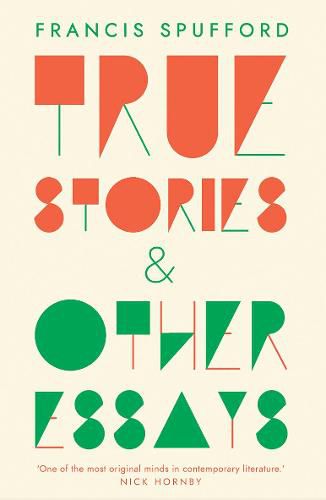Readings Newsletter
Become a Readings Member to make your shopping experience even easier.
Sign in or sign up for free!
You’re not far away from qualifying for FREE standard shipping within Australia
You’ve qualified for FREE standard shipping within Australia
The cart is loading…






An irresistible collection of favorite writings from an author celebrated for his bravura style and sheer unpredictability
Francis Spufford’s welcome first volume of collected essays gathers an array of his compelling writings from the 1990s to the present. He makes use of a variety of encounters with particular places, writers, or books to address deeper questions relating to the complicated relationship between story-telling and truth-telling. How must a nonfiction writer imagine facts, vivifying them to bring them to life? How must a novelist create a dependable world of story, within which facts are, in fact, imaginary? And how does a religious faith felt strongly to be true, but not provably so, draw on both kinds of writerly imagination?
Ranging freely across topics as diverse as the medieval legends of Cockaigne, the Christian apologetics of C. S. Lewis, and the tomb of Ayatollah Khomeini, Spufford provides both fresh observations and thought-provoking insights. No less does he inspire an irresistible urge to turn the page and read on.
$9.00 standard shipping within Australia
FREE standard shipping within Australia for orders over $100.00
Express & International shipping calculated at checkout
An irresistible collection of favorite writings from an author celebrated for his bravura style and sheer unpredictability
Francis Spufford’s welcome first volume of collected essays gathers an array of his compelling writings from the 1990s to the present. He makes use of a variety of encounters with particular places, writers, or books to address deeper questions relating to the complicated relationship between story-telling and truth-telling. How must a nonfiction writer imagine facts, vivifying them to bring them to life? How must a novelist create a dependable world of story, within which facts are, in fact, imaginary? And how does a religious faith felt strongly to be true, but not provably so, draw on both kinds of writerly imagination?
Ranging freely across topics as diverse as the medieval legends of Cockaigne, the Christian apologetics of C. S. Lewis, and the tomb of Ayatollah Khomeini, Spufford provides both fresh observations and thought-provoking insights. No less does he inspire an irresistible urge to turn the page and read on.